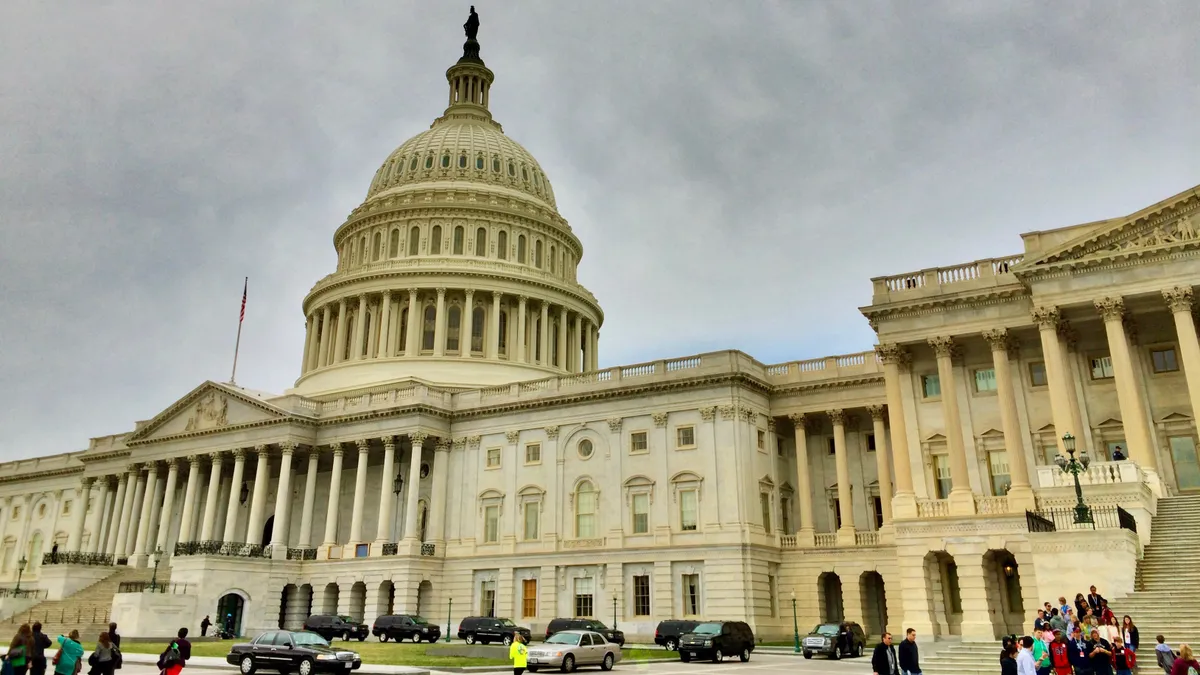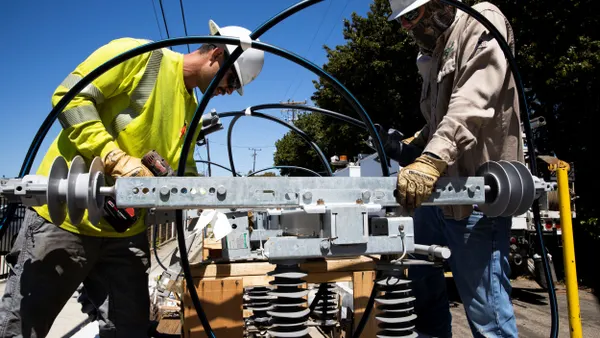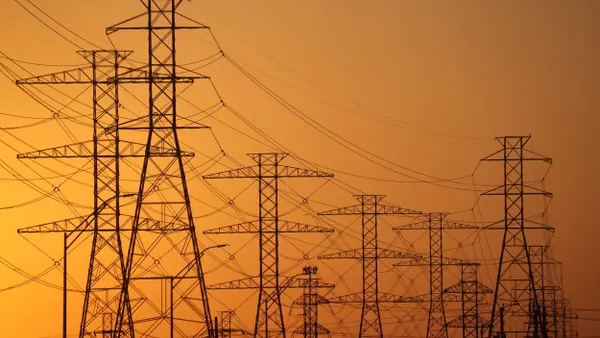Dive Brief:
- Senate Democrats on Wednesday unveiled the Clean Transit for America plan, which would provide $73 billion to shift public transit systems away from internal combustion engines through the procurement of electric buses and charging infrastructure.
- Also on Wednesday, the House Subcommittee on Energy heard testimony on electric vehicle (EV) provisions of The CLEAN Future Act, which aims to eliminate U.S. greenhouse gas (GHG) emissions by 2050. The EV measures in the bill would support the deployment of charging infrastructure and the development of domestic supply chains for EV and battery manufacturing.
- Republicans at the hearing pushed back, however, on a rapid shift to embrace electric transportation. "We are simply not ready to charge EVs at scale," said Rep. Fred Upton, R-Mich.
Dive Insight:
Republicans continue to express concern regarding the clean transportation portions of President Biden's infrastructure and jobs plan, arguing that the administration wants to take away consumer choice and leave the country dependent on China for transportation and manufacturing.
The Clean Future Act includes "billions in subsidies and mandates in an attempt to push EVs on the American public, whether they are ready for them or not," Upton said. He pointed to the likelihood of additional grid strain, a reliance on China to manufacture batteries and the dangers of "mandating EVs."
"We need to let the market and consumer choice drive the adoption of EVs," Upton said.
Energy and Commerce Committee Chairman Frank Pallone, D-N.J., countered that "electrifying the transportation sector is critical to meeting our climate goals." He said nearly 7 million electric vehicles will be sold annually by 2025, meaning the U.S. must ensure there is necessary charging and manufacturing infrastructure in place.
Pallone and other Democrats frame the EV push in terms of jobs and international competitiveness. The hearing considered four pieces of EV legislation, including provisions to bolster the domestic EV supply chain, improve access to EVs in underserved communities, and accelerate domestic manufacturing of batteries, power electronics and other technologies.
"China and other countries are rapidly growing their EV markets, and therefore we must invest aggressively to ensure we don’t lose the EV market to China," Pallone said. "It’s imperative this investment occur here to grow an American EV manufacturing base."
A fact sheet for Senate Democrats' new Clean Transit for America plan notes the U.S. has roughly 70,000 mass transit buses and 85,000 "cutaway vehicles" and transit vans — and just about 2% are currently zero-emissions.
We must transform our transit system,” Sen. Chuck Schumer, D-N.Y., said in a statement. The new transit proposal "will replace dirty, diesel-spewing buses, create new American jobs, help save the planet and protect public health, particularly in our country’s most vulnerable communities."
In fiscal year 2020, the federal government appropriated $75 million to its competitive grant program for the procurement of low- or no-emission transit buses in addition to $55 million in contract authority. Senate Democrats called this amount "woefully inadequate to meeting the challenge ahead of us."
The new transit program would increase funding to the bus contracting program and assist transit agencies in replacing their conventional buses while prioritizing funding for areas with the worst air quality. According to the fact sheet, it will cost between $56 billion and $89 billion to transition all public transit fleets to zero emissions by 2035.
The Sierra Club and other conservation and labor groups endorsed the transit proposal.
The shift to 100% electric buses "means healthier communities and a healthier economy," said Katherine Garcia, acting director of Sierra Club’s Clean Transportation for All Campaign. "The bill will take significant climate action while creating good, family-sustaining jobs in the U.S. and prioritize communities with the worst air quality to address decades of inequitable transportation policy," she said.















